Home » Jazz Articles » Big Band Report » Buddy Rich: In a Zone of His Own
Buddy Rich: In a Zone of His Own

Artie Shaw
clarinet1910 - 2004

Buddy Rich
drums1917 - 1987
The Best Keeps Getting Better
As if things weren't impressive enough already, Ken Poston has announced a special Sunday event to be held as a part of the Los Angeles Jazz Institute's Big Band Spectacular, set for May 23-26 at the L.A. Marriott Airport Hotel. The Sunday brunch, under the rubric "Birth of the Cool and Origins of the West Coast Sound," will consist of three concerts: The Real Birth of the Cool (Music of

Claude Thornhill
vocals1909 - 1965

Miles Davis
trumpet1926 - 1991

Gil Evans
composer / conductor1912 - 1988
In addition to Sunday's special event, two more bands have been added to the weekend lineup, bringing to eleven the number of groups scheduled to take part. The newcomers are big bands led by

Don Menza
saxophoneb.1936

David's Angels
vocals
Bill Holman
composer / conductor- 2024
Tom Kubis
arranger
Mike Barone
composer / conductorb.1936
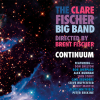
Steve Huffsteter
trumpet
Gordon Goodwin
composer / conductorb.1954

Roger Neumann
saxophone, tenorb.1941
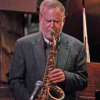
Kim Richmond
saxophoneWilliam Russo
composer / conductor1928 - 2003
The New York What . . . ?
I don't know how it slipped past me, but I never knew there was a New York Jazz Museum. Apparently, it opened in 1972 and lasted only about five years, brought down by a struggle for control within its ranks that led to lawsuits and its demise. The story of the ill-fated museum is recounted in a new book, Jazz Expose: The New York Jazz Museum and the Power Struggle That Destroyed It, written by Howard Fischer, the museum's founder and executive director. For information about the book, phone Howard Fischer, 212-864-1479. An e-book version is available at Amazon.com and Smashwords.
The Wilbur Ware Institute
Unlike the New York Jazz Museum, the

Wilbur Ware
bass, acoustic1923 - 1979
Savannah Music Festival to Welcome High School Bands
Swing Central Jazz has chosen a dozen high school jazz ensembles to take part in the 2013 Savannah (GA) Music Festival. Participating students will interact with professional jazz musicians, perform in showcases on Savannah's River Street, play in competition rounds, and attend a variety of SMF performances during their three-day stay, from March 27-29. The bands will be competing for $13,000 in cash awards. The bands are:
Agoura (CA) High School Studio Jazz Band; Agoura High School Jazz Band "A"; Charleston (SC) School of the Arts Jazz; Camden (NJ) Creative Arts Jazz Band; Denver (CO) School of the Arts Jazz Workshop Orchestra; Downers Grove South (IL) High School Jazz Ensemble; Grissom (AL) High School "A" Jazz Band; Lower Moreland (PA) High School Jazz Ensemble; Overton (TN) High School Blue Jazz Ensemble; Savannah (GA) Arts Academy Jazz Band; Tarpon Springs (FL) High School Jazz Ensemble; Lovett (GA) High School Jazz Ensemble.
The 2013 Swing Central Jazz clinicians are
Jim Ketch
trumpetb.1952

Marcus Printup
trumpetb.1967

Terell Stafford
trumpetb.1966
Stephen Riley
saxophone, tenor
Jack Wilkins
saxophone, tenor1944 - 2023

Wycliffe Gordon
tromboneb.1967

Ron Westray
tromboneb.1970
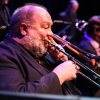
Paul McKee
trombone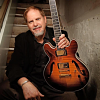
Dave Stryker
guitarb.1957

Jason Marsalis
vibraphoneb.1977
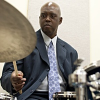
Leon Anderson
drums
Herlin Riley
drumsb.1957

Rodney Jordan
bass, acoustic
Rodney Whitaker
bassb.1968

Marcus Roberts
pianob.1963

Aaron Diehl
piano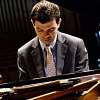
Dan Nimmer
pianob.1982
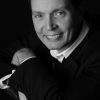
Bill Peterson
pianoFond Farewells
January 10, 2013, was a dark day for Swiss jazz, as that country lost not one but two of its leading lights: entrepreneur Claude Nobs and bandleader

George Gruntz
piano1932 - 2013

Duke Ellington
piano1899 - 1974

Jon Faddis
trumpetb.1953

Woody Shaw
trumpet1944 - 1989

Lee Konitz
saxophone, alto1927 - 2020

Joe Henderson
saxophone1937 - 2001

Elvin Jones
drums1927 - 2004

Paul Motian
drums1931 - 2011
On December 24, 2012, Great Britain lost one of its most celebrated and versatile musicians, Sir Richard Rodney Bennett, who died in New York City, age seventy-six. Although better known as a film composer with classical leanings (three of his movie scores were nominated for Academy Awards), Bennett was a jazz devotee from early childhood who wrote and arranged in the jazz and pop fields as well. In the ballet Jazz Calendar (1964), danced by Rudolf Nureyev to choreography by Frederick Ashton, Bennett composed a score that was pure jazz. From the 1970s onward, he worked regularly as a jazz pianist, forming a duo with vocalist

Marian Montgomery
b.1934
Claire Martin
vocalsb.1967
Johnny Bassett
b.1935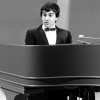
Dudley Moore
pianob.1935
Recent Big Band Releases
 Steve Williams & Jazz Nation
Steve Williams & Jazz NationWith Eddie Daniels
OA2 Records
2012
Saxophonist

Steve Williams
drumsb.1956
Liesl Whitaker
trumpet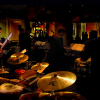
Joe McCarthy
drums
Eddie Daniels
clarinetb.1941

Mark Morganelli
trumpetb.1955

Pete McCann
guitarb.1966

Harry Appelman
pianob.1961

Mike Pope
bassWhat does this have to do with the music? In terms of quality control, almost everything. These are among the finest musicians Williams could have enlisted, not only in DC but anywhere else. All that remained was to give them engaging charts to play, and this he has done in spades, thanks in part to Daniels who wrote three of them (and solos on two). Williams penned the others, starting with the walking blues "Certified," which embodies certified grade A solos by alto Joe Henson (Blues), trumpeter Justin Kisor (ex-Commodores) and Pope. Daniels, best known these days as a clarinetist, was first employed as a tenor saxophonist with the

Thad Jones
trumpet1923 - 1986

Mel Lewis
drums1929 - 1990

Luis Hernandez
saxophone, tenor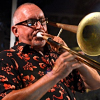
Jim McFalls
tromboneWilliams takes it from there, and his charts are no less agreeable, starting with the forceful "Entre Nous" (solos by Appelman and the Commodores' trumpeter Tim Stanley) and including "Where's Marty?," "Elyeska" and the loping "Cathel Brugha Blues," the last of which embodies an agile statement by baritone saxophonist and former Commodores player / arranger
Scott Silbert
saxophone, tenor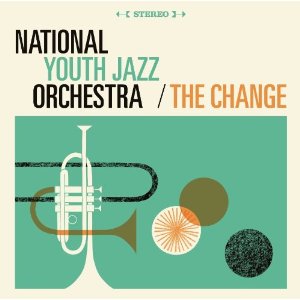 National Youth Jazz Orchestra
National Youth Jazz OrchestraThe Change
NYJO Records
2012
Even within the most well-run and successful groups change is inevitable, and so it has been for Great Britain's foremost group of young prodigies, the National Youth Jazz Orchestra, still going strong after more than forty-five years of memorable music-making.

Bill Ashton
b.1936Yes, there are a few departures from the beaten path:

Tim Garland
clarinet, bassb.1966

Nikki Iles
piano- 2012

Juan Tizol
trombone1900 - 1984
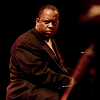
Julian Joseph
pianob.1966
Guest

Mark Mondesir
drumsb.1964
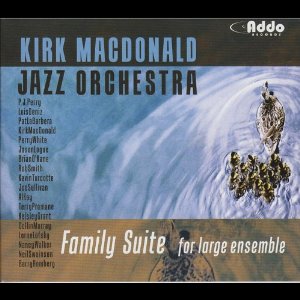 Kirk MacDonald Jazz Orchestra
Kirk MacDonald Jazz OrchestraFamily Suite for Large Ensemble
Addo Records
2012
Canadian composer / saxophonist

Kirk MacDonald
saxophoneb.1959
Setting aside the thematic framework (which is largely inapposite), what MacDonald has written (and Promane has orchestrated) is a series of musical essays that bring out the best in the orchestra, even though in most instances they are far removed from the more conventional straight-ahead swing of a Basie, Herman, Rich or even

Rob McConnell
trombone1935 - 2010

Lorne Lofsky
guitarb.1954

Neil Swainson
bass, acousticb.1955

Kevin Turcotte
trumpetb.1964

Nancy Walker
piano
PJ Perry
saxophoneb.1941
While MacDonald has assembled a world-class ensemble, loaded with alumni from celebrated groups led by McConnell, " data-original-title="" title="">Dave McMurdo and others, what sets it apart are his tasteful compositions and Promane's astute orchestrations. The Family Suite for Large Ensemble should quickly earn approval and applause from any family anywhere.
 Dani Felber Big Band Explosion
Dani Felber Big Band ExplosionThank You, Fos!
Musiques Suisses
2013
If

Frank Foster
saxophone1928 - 2011

Count Basie
piano1904 - 1984
Felber met Foster in 2009, two years before Frank's passing, and the kindred souls became close friends. Foster encouraged his young companion to move in new directions, offered helpful advice and even gave Felber a number of his superlative charts including a new arrangement of his most memorable theme, "Shiny Stockings." Of the dozen tunes on Thank You, Fos!, all save one (

Neal Hefti
trumpet1922 - 2008
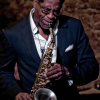
Brad Leali
saxophone, alto
Carmen Bradford
vocalsb.1960

Butch Miles
drumsb.1944

Eric Marienthal
saxophoneb.1957

Chick Corea
piano1941 - 2021
While the music on offer embodies ingredients from ballads to blues, swinging is what Felber's band does best and most often, opening on an upbeat note with the leader's "Thank You, Fos!," which encompasses lively solos by Marienthal and pianist Jura Waida. Following "Shiny Stockings" (solos by Waida and trumpeter Gabriel Keogh) and "Raindrops," the ensemble dashes headlong into Felber's strapping "One Two Three" and Foster's galvanic "Love Handles" before slowing the pace on Foster's "Lady Carolyn" (earnest solos courtesy of Leali and trombonist Jurgen Neudert). Another barn-burner, Felber's finger-popping "Jorg on the Road," precedes Foster's soulful "Ode to

Joe Newman
trumpet1922 - 1992
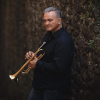
Andrea Tofanelli
trumpetb.1965
While Felber would surely agree that there's no way he could ever fully repay Foster for his encouragement and friendship, Thank You, Fos! is at least a generous down payment on that debt. More to the point, this is a sharp and persuasive big-band scrapbook that swings with gusto—exactly as Fos would have wanted it.
 University of North Texas One O'Clock Band
University of North Texas One O'Clock BandLab 2012
UNT Jazz
2012
The University of North Texas Jazz Studies program, which was established in the mid-1940s, has continued since then to improve and impress by every standard, measurable or personal. The same holds true for the university's renowned flagship ensemble, the One O'Clock Lab Band, whose annual Lab (fill in the blank) recordings achieve ever-higher standards for artistry and musicianship while setting the bar at a level to which most other college-level bands can only gaze in appreciation and aspire to reach. Lab 2012 is no exception, as the One O'Clock Band deftly unravels five student-composed themes and one each by director
Steve Wiest
trumpetb.1959
The ensemble sprints from the starting blocks to devour the first course, lead trumpeter Tyler Mire's succulent "Be That Way" (tangy solos courtesy of trombonist Kevin Hicks, baritone Spencer Liszt, bassist Brian Ward and drummer Greg Sadler). Speaking of highlights, as we were a moment ago, the second number, "Abby Song," written by trombonist Jenny Kellogg in memory of her golden retriever who died in August 2011, is an elegant masterpiece whose 11:38 playing time is sundered into five sections (birth / puppyhood / adulthood / old age and dying / reflections after loss), each of which is musically and emotionally rewarding. Kellogg solos with soprano Justin Pierce and trumpeter Jordan Gheen. Gheen (electric trumpet) is showcased with bassist Ward on the album's most ambitious piece, DeRosa's multi-layered "Fugue for Thought" (reminiscent of some of the late trumpeter

Don Cherry
trumpet1936 - 1995
"Shiny Stockings" (solos by Sadler, trumpeter Miles Johnson, pianist Sean Giddings) precedes Wiest's funk-fusion opus "Fifth Shade" (Sean Casey, bass trombone; Giddings, piano; William Flynn, guitar) and tenor saxophonist Aaron Hedenstrom's sunlit theme, "The Sparrow Was Gone in an Instant." Hedenstrom is the soloist on his second composition, "From Above," which is followed by Slater's picturesque "3rd and 55th" (Johnson, flugelhorn; Hedenstrom, tenor sax) and the fast-moving finale, tenor Drew Zaremba's explosive "Race to the Finish" (on which he solos with Sadler and alto Alex Fraile). With somewhere around a dozen first-rate ensembles in the UNT program, the members of the One O'Clock Band couldn't be faulted for glancing over their shoulders from time to time to see if the others are gaining ground. Judging from Lab 2012 they needn't bother; their seats at the head of the class would seem to be perfectly safe until they have earned their degrees and moved into the wider and more perilous world of professional music-making.
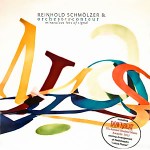 Reinhold Schmolzer & Orchest*ra*conteur
Reinhold Schmolzer & Orchest*ra*conteurMiraculous Loss of Signal
Unit Records
2012
To say that Austrian
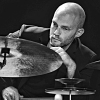
Reinhold Schmölzer
drums"Wheeling Around That SO.FI," for example, is sheer beauty, with shapely solo work by pianist Manuel Schmiedel and trombonist Simon Harrer, whereas "Lotus Flower," which follows, includes passages that emulate the sounds of a race car and other exotic contrivances, meanwhile changing mood and tempo to suit the moment. Again, the trombone (

Philip Yaeger
tromboneb.1976
As noted, an album not suited to everyone's taste, but one that should reward any listener with an open mind who is pleased to explore bright new avenues and to travel wherever they may lead.
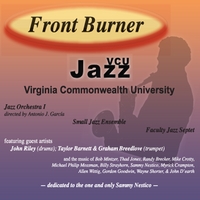 Virginia Commonwealth University
Virginia Commonwealth UniversityFront Burner
VCU Jazz
2012
Virginia Commonwealth University's Jazz Orchestra is no stranger to recording game plans and techniques, having produced half a dozen superb albums prior to the latest one, Front Burner, which was recorded live (no dubs or intercuts) either on-campus in Richmond, VA (four concerts) or at the Notre Dame Intercollegiate Jazz Festival (three tracks) in March 2012. The orchestra performs ably on eight of eleven numbers, complementing two by the Faculty Jazz Septet and another by the VCU Small Jazz Ensemble.
If the main song's name sounds familiar that's probably because it was written by the eminent

Sammy Nestico
composer / conductor1924 - 2021

Bob Mintzer
saxophoneb.1953

Thad Jones
trumpet1923 - 1986

Randy Brecker
trumpetb.1945

Michael Philip Mossman
composer / conductorb.1959

Billy Strayhorn
piano1915 - 1967

Gordon Goodwin
composer / conductorb.1954

Wayne Shorter
saxophone1933 - 2023

John D'Earth
trumpetb.1950

John Riley
drumsb.1954
The small jazz ensemble (a quintet) swings through tenor saxophonist Myrick Crampton's Middle Eastern flavored "No Waddi" before the orchestra returns to perform student Allen Wittig's lively "Armando's Big Band" and Goodwin's powerful "Swingin' for the Fences" (a.k.a. "Sweet Georgia Brown") and the faculty septet wraps things up with Shorter's "Lost" and D'earth's colorful "Graffiti." Crampton, whose plain-spoken style calls to mind Mintzer, among others, leads a phalanx of resourceful and engaging undergrad soloists that includes trumpeters Victor Haskins and Ben Heemstra, trombonist Chris Bates, pianist Brian Mahne, alto Brendan Schnabel, baritone Trey Sorrells, bassist Andrew Randazzo and drummer C.J. Wolfe. For concert performances, over-all sound quality is well above average. Another first-rate album from the VCU orchestra and its able director, Anthony Garcia.
Sight and Sound
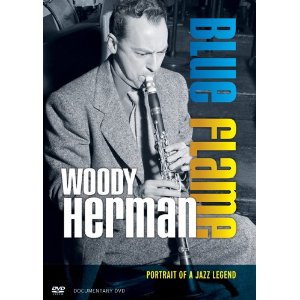 Woody Herman
Woody HermanBlue Flame: Portrait of a Jazz Legend
Jazzed Media
2013

Woody Herman
band / ensemble / orchestra1913 - 1987
Having paid his dues in bands led by Tom Gerun, Harry Sosnick,
Gus Arnheim
b.1897Isham Jones
b.1894
Jimmy Giuffre
clarinet1921 - 2008

Ralph Burns
piano1922 - 2001

Stan Getz
saxophone, tenor1927 - 1991

Zoot Sims
saxophone, tenor1925 - 1985

Herbie Steward
saxophone1926 - 2003

Serge Chaloff
saxophone, baritoneb.1923

Bobby Shew
trumpetb.1941
Chapter 2, "The Early Years," begins with Herman's birth in Milwaukee and continues through his time as a sideman in various orchestras. After "The Band That Plays the Blues," Woody formed his first Herd in 1944, one that Dr. Wong says "set a standard for other bands" through 1946. One year later, the Second Herd burst on the scene with an all-star lineup playing bop-oriented charts by Giuffre, Burns,

Shorty Rogers
trumpet1924 - 1994

Terry Gibbs
vibraphoneb.1924
Carter has done his best to unearth film clips of the various Herds in action, and there are some pretty good ones, especially a driving version of "Caldonia" from the Ed Sullivan TV show in 1963 (featuring the incomparable

Sal Nistico
saxophone1948 - 1991

Frank Tiberi
saxophone, tenorb.1928
In the penultimate chapter, "Early Autumn," mention is made of Herman's troubles with the IRS after his manager, Abe Turchin, failed to pay federal taxes for a number of years, leaving Herman with a $1.5 million debt. Again, Woody weathered the storm (but lost his house), and was on the road again in January 1987. His last concert as leader was given in March '87 in Grand Meadow, MN, shortly before he was hospitalized for the last time. Before leaving, he turned the reins of the Herd over to Tiberi with the wish that he should keep it going (which he has). "The Chopper" closes the documentary with observations about the Herman legacy, again from former sidemen, historians Morgenstern and Wong, and author Bill Clancy. Woody, says Gibbs, "never led a bad band . . . every one of his bands was great." "Woody," adds drummer Ronnie Zito, "had to be on the road." And he loved nothing more, adds drummer Joe LaBarbera, "than standing in front of that band." Herman loved it so much that he stood in front for more than half a century, almost to the day he died. He not only loved leading the band, he loved being a member—playing clarinet, soprano saxophone and singing, all of which he did quite well, far better than many have given him credit for. Woody wore his heart on his sleeve; as he once said, "I get carried away by good sound." Which is one reason his bands always sounded so good. To hear how good, and to hear why those who knew Woody Herman were so charmed by his congeniality and awed by his talent, consider seeking out a copy of Blue Flame, a worthy successor to Carter's earlier narratives:
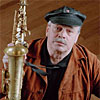
Phil Woods
saxophone, alto1931 - 2015
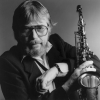
Bud Shank
saxophone1926 - 2009

Stan Kenton
piano1911 - 1979
 Steve Taylor Big Band Explosion
Steve Taylor Big Band ExplosionTo Buddy Rich and Beyond . . .
i2iDVDeye
2013
Tags
Buddy Rich
Big Band Report
Jack Bowers
United States
Artie Shaw
Claude Thornhill
Miles Davis
Gil Evans
Don Menza
David Angel
Bill Holman
Tom Kubis
Mike Barone
Steve Huffsteter
Gordon Goodwin
Bob Curnow
Roger Neumann
Kim Richmond
William Russo
WIlbur Ware
Jim Ketch
Marcus Printup
Terell Stafford
Stephen Riley
Jack Wilkins
Wycliffe Gordon
Ron Westray
Paul McKee
Dave Stryker
Jason Marsalis
Leon Anderson
Herlin Riley
Rodney Jordan
Rodney Whitaker
Marcus Roberts
Aaron Diehl
Dan Nimmer
Bill Peterson
George Gruntz
duke ellington
Jon Faddis
Woody Shaw
Lee Konitz
Joe Henderson
Elvin Jones
Paul Motian
Marian Montgomery
claire martin
John Bassett
Dudley Moore
Steve Williams
Liesl Whitaker
Joe McCarthy
eddie daniels
Mark Morgan
Pete McCann
Harry Appelman
Mike Pope
Thad Jones
Mel Lewis
Luis Hernandez
Jim McFalls
Scott Silbert
Bill Ashton
Tim Garland
Nikki Iles
Juan Tizol
Julian Joseph
Mark Mondesir
Kirk MacDonald
Rob McConnell
Lorne Lofsky
Neil Swainson
Kevin Turcotte
Nancy Walker
P.J. Perry
Dave McMurdo
Frank Foster
Dani Felber
Count Basie
Neal Hefti
Brad Leali
CARMEN BRADFORD
Butch Miles
Eric Marienthal
Chick Corea
Joe Newman
Andrea Tofanelli
Steve Wiest
Don Cherry
Reinhold Schmolzer
Phil Yaeger
Sammy Nestico
bob mintzer
randy brecker
Michael Philip Mossman
Billy Strayhorn
Wayne Shorter
John D'Earth
John Riley
Woody Herman
Gus Arnheim
Isham Jones
Jimmy Giuffre
Ralph Burns
Stan Getz
Zoot Sims
Herbie Steward
Serge Chaloff
Bobby Shew
Shorty Rogers
Terry Gibbs
Sal Nistico
Frank Tiberi
Phil Woods
Bud Shank
Stan Kenton
pat metheny
Steve Marcus
Jay Corre
Mike Longo
Dizzy Gillespie
Paul West
Paul Desmond
Dave Brubeck
Larry Koonse
ED CZACH
Luther Hughes
Steve Barnes
Gerry Mulligan
Miles Osland
Keith Jarrett
Ron Carter
Thelonious Monk
carla bley
Comments
PREVIOUS / NEXT
Support All About Jazz
 All About Jazz has been a pillar of jazz since 1995, championing it as an art form and, more importantly, supporting the musicians who make it. Our enduring commitment has made "AAJ" one of the most culturally important websites of its kind, read by hundreds of thousands of fans, musicians and industry figures every month.
All About Jazz has been a pillar of jazz since 1995, championing it as an art form and, more importantly, supporting the musicians who make it. Our enduring commitment has made "AAJ" one of the most culturally important websites of its kind, read by hundreds of thousands of fans, musicians and industry figures every month.



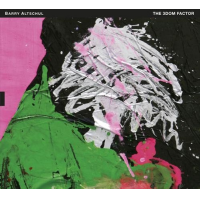

 Buy Now
Buy Now




















